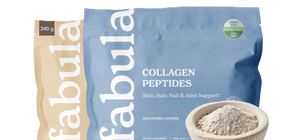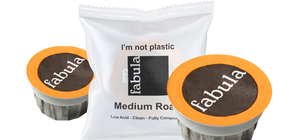Coffee is cherished globally for its bold flavor and energy-boosting qualities. But what if some common beliefs about coffee aren't quite true? In this post, Unpopular Coffee Opinions with Surprising Health Benefits, we’ll explore unexpected truths backed by research that challenge conventional wisdom. Whether you're a casual drinker or a coffee enthusiast, these insights might just transform how you view your daily cup of coffee.
1. Coffee Can Actually Hydrate You
Unpopular Opinion: Coffee is a diuretic that dehydrates you.
Scientific Support: For years, we’ve been told that coffee dehydrates the body because of its diuretic effect. But that’s only half the story. While caffeine does have a mild diuretic effect, studies have shown that the water content in coffee offsets this and contributes to your overall hydration.
A study published in PLOS ONE found that moderate coffee consumption—about 3-4 cups per day—does not cause dehydration when compared to drinking water. In fact, coffee can contribute positively to your daily fluid intake, making it more hydrating than people think! So, if you’ve been avoiding that extra cup out of fear of dehydration, you might be in for a pleasant surprise.

2. Coffee Can Promote Gut Health
Unpopular Opinion: Coffee is bad for your stomach and causes digestive issues.
Scientific Support: While it’s true that coffee can trigger acid reflux in some people, new research shows that it might actually benefit your gut health. A study in the Journal of Nutritional Biochemistry discovered that coffee consumption supports the growth of beneficial gut bacteria, particularly Bifidobacteria, which play an essential role in maintaining a healthy gut microbiome.
By boosting the population of these good bacteria, coffee may aid digestion and contribute to better overall gut health. However, as with most things, moderation is key—if you’re prone to acid reflux, you might want to limit your intake or switch to low-acid blends.

3. Decaf Coffee Has Health Benefits Too
Unpopular Opinion: Decaf is pointless—if there’s no caffeine, what’s the point?
Scientific Support: Decaf coffee often gets a bad reputation for being “watered down” or not delivering the same punch as regular coffee. However, it still contains many of the beneficial compounds found in regular coffee, like antioxidants and polyphenols. According to research in the European Journal of Clinical Nutrition, decaf coffee provides similar health benefits to regular coffee, such as reducing the risk of type 2 diabetes and improving cardiovascular health.
What’s more, because decaf has less caffeine, it can be an ideal choice for people who want to enjoy coffee’s benefits without the jittery effects or for those who need to cut back on caffeine for health reasons.

4. Coffee May Help Prevent Certain Kidney Stones
Unpopular Opinion: Coffee causes kidney problems due to its diuretic nature.
Scientific Support: While some people believe coffee puts strain on the kidneys, the opposite may actually be true when it comes to kidney stones. A 2021 study published in Kidney International Reports found that both caffeinated and decaffeinated coffee are associated with a lower risk of developing kidney stones.
The study suggests that coffee drinkers may benefit from a reduced likelihood of stone formation due to coffee’s ability to increase urine output, which can help prevent the crystallization of minerals that lead to kidney stones. So, if you’ve been avoiding coffee out of concern for your kidneys, this research might make you reconsider.

5. Too Much Coffee Can Impact Bone Health
Unpopular Opinion: Coffee is perfectly safe in any amount.
Scientific Support: While coffee offers numerous health benefits, excessive consumption might come with a downside for your bones. A study in the Journal of Clinical Endocrinology & Metabolism found that drinking more than 6 cups of coffee per day can interfere with calcium absorption, potentially leading to a decrease in bone density over time.
This doesn’t mean you have to cut out coffee altogether—moderate consumption (around 3-4 cups per day) is generally considered safe and beneficial. However, if you’re prone to osteoporosis or are concerned about bone health, keeping your intake in check is a good idea, or consider adding calcium-rich foods to your diet to counterbalance the effects.

6. Coffee May Not Be Safe During Pregnancy
Unpopular Opinion: Moderate amounts of coffee are fine for pregnant women.
Scientific Support: Many pregnant women are advised to limit their caffeine intake, but recent research suggests that even small amounts of caffeine could pose risks. A study published in BMJ Evidence-Based Medicine argued that there is no “safe” level of caffeine during pregnancy. It linked even low caffeine intake to higher risks of miscarriage, stillbirth, and low birth weight.
While these findings are controversial and not universally accepted, they do raise important questions about the impact of caffeine on pregnancy. Many healthcare providers still recommend keeping caffeine intake below 200 mg per day during pregnancy, but this emerging research suggests that some women may want to consider cutting out coffee altogether during this period.

Final Thoughts
Coffee undeniably holds a special place in many of our lives, but like anything, moderation is essential. Whether you're sipping on a bold dark roast or choosing decaf, understanding the science behind your brew empowers you to make better decisions. As we've explored in *Unpopular Coffee Opinions with Surprising Health Benefits*, coffee can offer a range of health advantages—from hydration to gut health—depending on how it's consumed. So, go ahead and enjoy your Fabula coffee, knowing you're getting more than just great taste. Check out our best sellers and discover your new favorite brew here!
References:
- PLOS ONE, 2014
- Journal of Nutritional Biochemistry, 2020
- European Journal of Clinical Nutrition, 2018
- Kidney International Reports, 2021
- Journal of Clinical Endocrinology & Metabolism, 2019
- BMJ Evidence-Based Medicine, 2020





